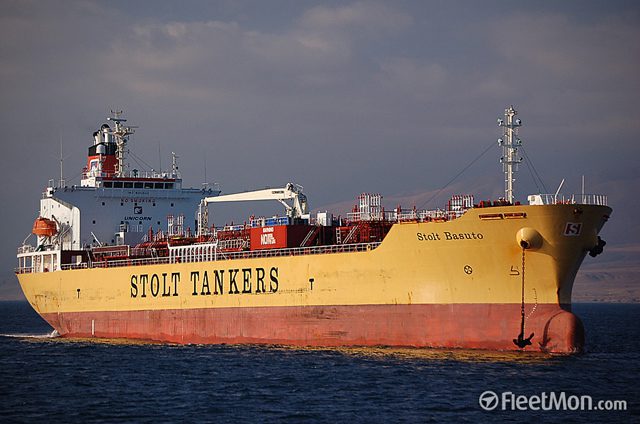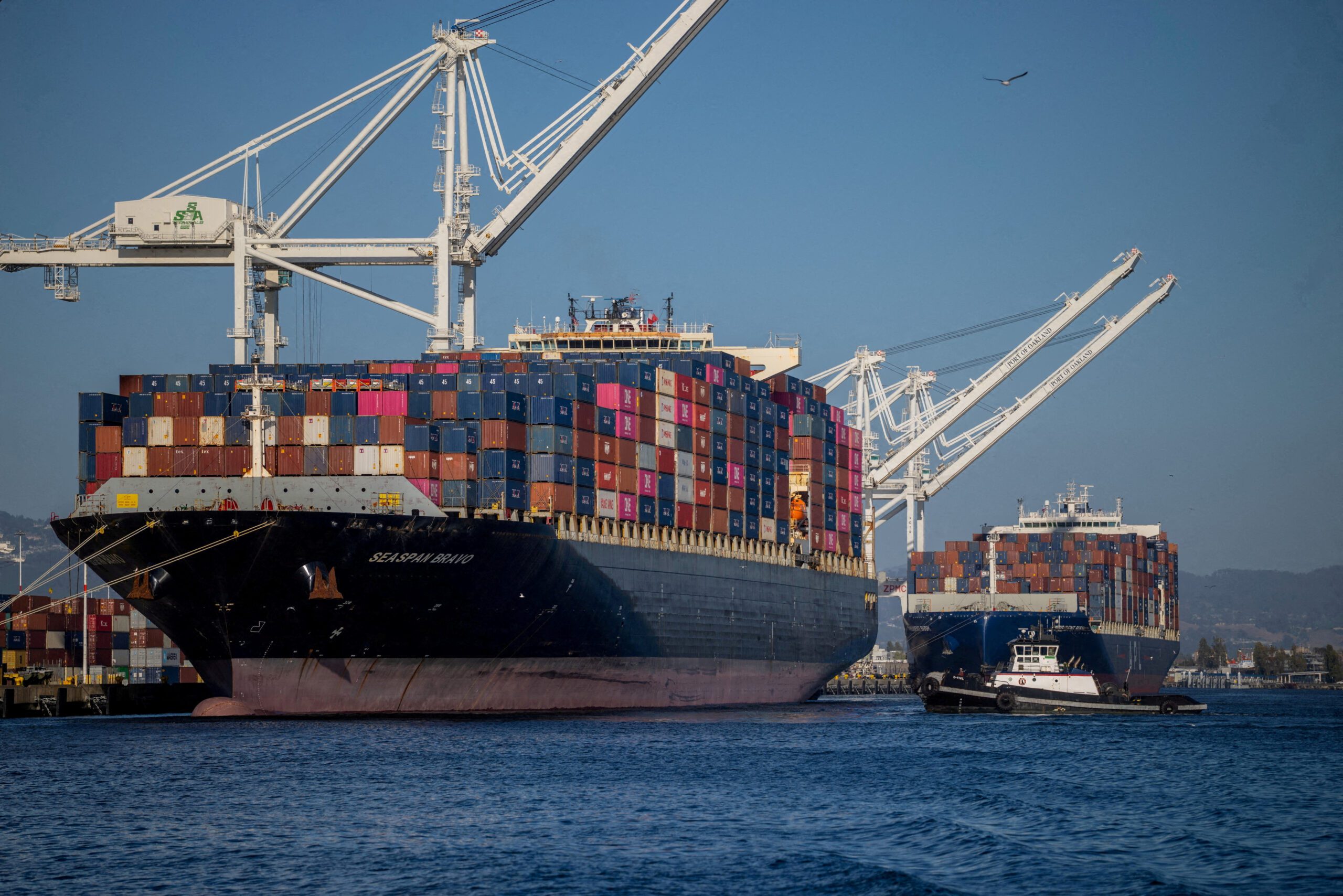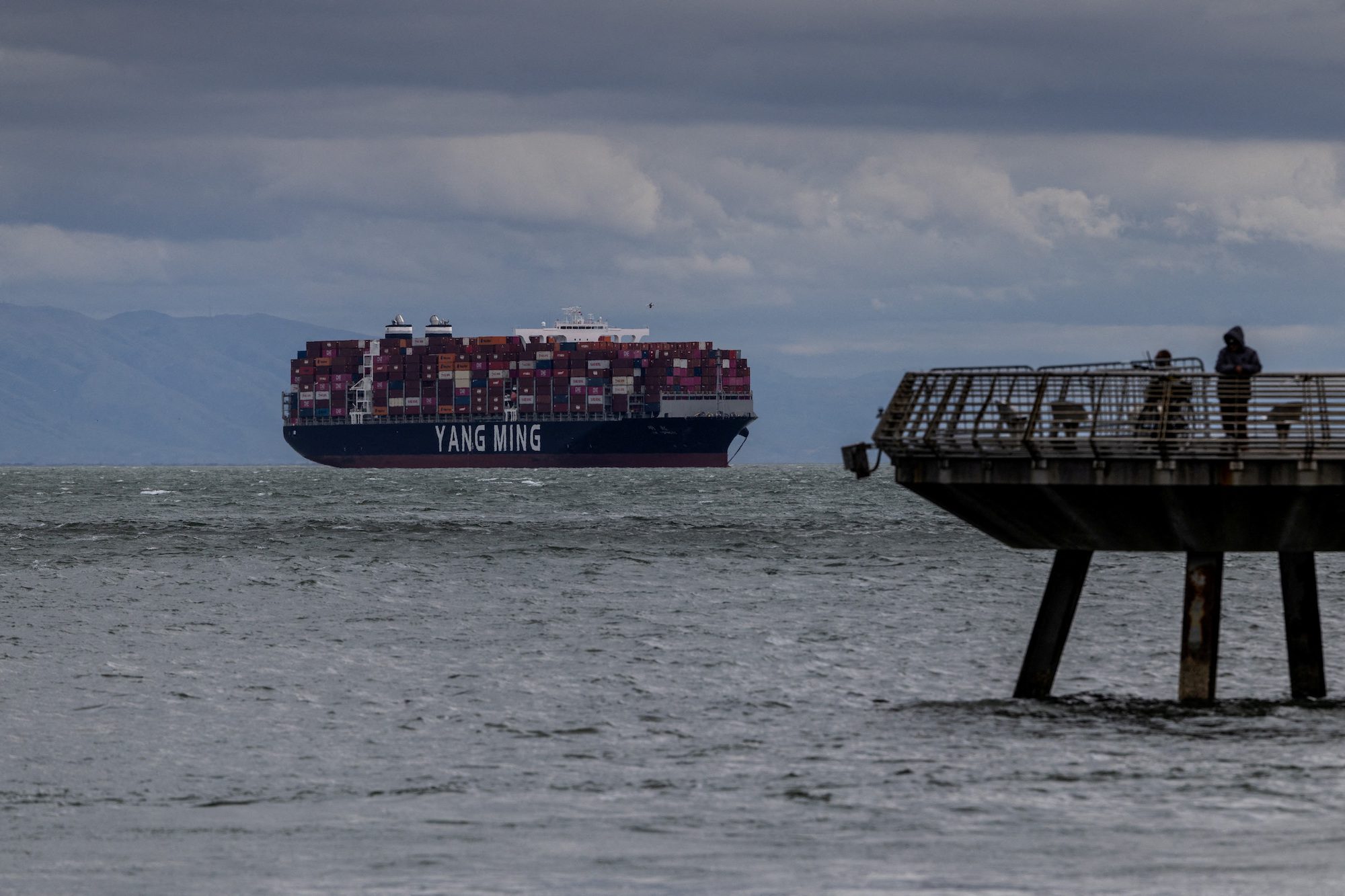Stolt Basuto is one of the many tankers currently standing by outside the Houston Ship Channel. via Fleetmon
March 25 (Bloomberg) — The closing of the Houston Ship Channel is idling vessels that carried a record amount of U.S. natural gas liquids exports last year, raising questions about the need for geographic diversity in the burgeoning market.
Most U.S. capacity to export NGLs is on the channel, said Peter Fasullo, a principal at Houston-based energy consultant EnVantage Inc. The U.S. averaged 475,000 barrels a day of exports in 2013, up from 164,000 in 2010, according to Energy Information Administration data. Two companies, Enterprise Products Partners LP and Targa Resources Partners LP, have channel operations that combine to represent 380,000 barrels a day of export capacity, Fasullo said.
“That’s all going to go offline,” Fasullo said. “Ships can’t get into the terminals to get loaded, and those that are loaded can’t get out.”
There is no estimate on when the 52-mile (83-kilometer) channel will reopen, U.S. Coast Guard Captain Brian Penoyer said yesterday at a press conference in Texas City. The channel was shut March 22, when a vessel and barge collided near where the waterway meets the Gulf of Mexico, causing the release of about 4,000 barrels of fuel oil.
Update: Over 100 Ships Wait in Line As Coast Guard Slowly Reopens Houston Ship Channel
There are 140 vessels waiting to move through the channel, the Coast Guard said yesterday. The channel is closed from just north of Texas City down to its entrance, at Bolivar. To reopen the channel, the Coast Guard needs an uncontaminated lane for ship traffic and to be sure the traffic won’t impede cleanup, Penoyer said.
Propane, Butane
Enterprise operates a 14,000-barrel-an-hour tanker terminal and a 5,000-barrel-an-hour barge facility on the channel. Capabilities at those facilities have been “limited somewhat,” Houston-based spokesman Rick Rainey said by e-mail.
Targa can export 115,000 to 130,000 barrels a day from its terminal in Galena Park. Jennifer Kneale, a Houston-based spokeswoman for the company, declined to comment on operations.
Exports of NGLs such as propane and butane have risen as production increased 67 percent from the start of 2009, driven by shale fields in Texas, Pennsylvania and other states.
The U.S. exported 626,000 barrels a day of natural gas liquids in December, EIA data show. By comparison, exports of distillate fuel were 1.2 million and finished motor gasoline exports were 576,000.
The ship channel is the closest waterway to Mont Belvieu, Texas, home to the largest NGL storage capacity in the world. Terminals on the channel have been the “workhorse” for NGL exports so far, Fasullo said. Propane swaps traded at $1.059 a gallon yesterday at Mont Belvieu, according to New York Mercantile Exchange data. They declined 17 percent this year.
Other Ports
Companies are planning to spend $35 billion on new projects and expansions along the ship channel, according to a 2012 Greater Houston Port Bureau survey. The weekend spill is the type of incident that can raise questions about how much more traffic the channel can take, Fasullo said.
“The industry has to think about how much infrastructure the channel can really handle,” he said. “Because we’re putting a whole lot of traffic on one waterway.”
Companies like Phillips 66 and Occidental Petroleum Corp. are planning NGL export terminals on other Texas ports. Occidental plans to use most of the space on a 110,000-barrel-a- day NGL pipeline to Corpus Christi from Mont Belvieu for an export terminal at a former naval base in Ingleside, Texas.
Phillips 66 is investing in an NGL export terminal in Freeport, Texas, about 30 miles southwest of where the channel opens to the Gulf of Mexico. The spill illustrates why the U.S. NGL industry needs to spread export capacity to other areas, Jim Webster, Phillips 66’s general manager of midstream, said in an interview in Houston.
“It’s like your personal portfolio,” Webster said yesterday after speaking at the IHS International LPG Summit. “You want to diversify your risk, whether that’s in bonds and stocks or whether that’s in where fractionation capacity is and what waterways are used.”
–With assistance from Isaac Arnsdorf in New York, Barbara Powell in Houston and Naomi Christie in London.
– Dan Murtaugh, Copyright 2014 Bloomberg.

 Join The Club
Join The Club











